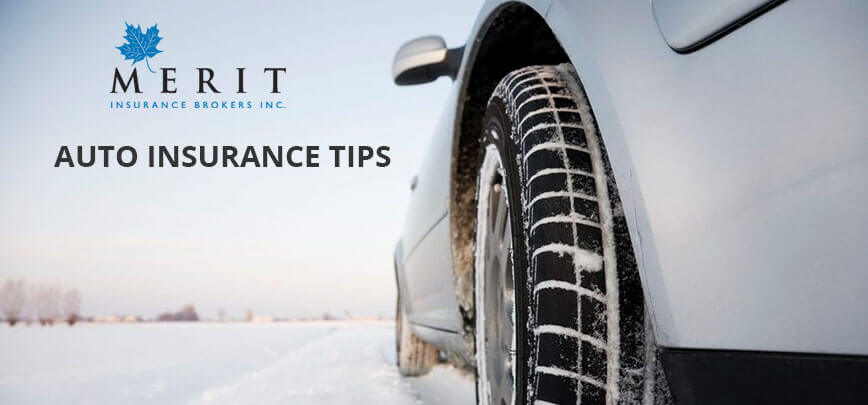
Auto Insurance Tips
Important information and auto insurance tips for Ontario drivers on car theft prevention, child restraint safety, airbags, auto accident “what ifs” and more.
How to Prevent Vehicle Theft
Although you cannot ensure your vehicle will not be stolen, you can take a few easy steps to reduce the likelihood of it happening by making it more difficult for a thief to steal your vehicle and its contents:
- Always lock your vehicle.
- Never leave your keys in the vehicle.
- Turn off your ignition whenever you leave your car.
- Avoid parking on the street.
- Conceal items left in your car, keep things in the trunk and never leave money or compact discs in the open.
- Whenever possible, park your vehicle in a well-lit, well-guarded, highly visible area.
- Ask your neighbours to watch out for your vehicle and do the same for them.
- Install an anti-theft deterrent such as car alarms or an ignition disabler.
For more tips on car theft prevention, contact the appropriate industry organization in your area (e.g. Vehicle Information Centre).
Vehicle Safety and Maintenance
- Read your vehicle owner’s manual to understand its maintenance needs.
- Maintaining your vehicle according to the manufacturer’s recommended maintenance schedule will go a long way in extending the life of your vehicle and spotting minor problems before they become major repairs.
- Have your vehicle checked by a qualified mechanic whenever you notice a change in braking or handling.
- Consider taking a recognized driver safety course.
Brakes:
Your brakes are obviously one of the most important components on your automobile. Proper care and regular maintenance is essential to protect both yourself and others from potential harm caused by faulty brakes. Some signs that your brakes may be failing or require maintenance include:
- The brakes squeal, grind or bang when applied. If this occurs you should immediately have your brakes checked.
- The car pulls to one side when you apply the brakes.
- The brakes stick or a loss of engine power when you are driving. Your brakes may not be releasing properly, which can lead to total brake loss.
- The brakes grab when lightly applied. This could be caused by loose or broken brake parts.
- The brakes need a lot of pressure to work or the pedal needs to be near the floor before it works. This may be a sign that your brakes are worn and replacement is necessary.
- The brake pedal, steering wheel or entire car vibrates when you step on the brakes.
Child Restraint Safety
It is important to install a child’s restraint seat properly in order for it to be effective. Be sure to read the manufacturer’s installation instructions thoroughly. Many police departments have programs to help with proper installation. For tips and information regarding child seat safety, contact Transport Canada.
Road Safety
Road safety is an important issue on today’s crowded roadways. For statistics and information regarding road safety and its impact on social and medical costs, contact Transport Canada.
Airbags and Seatbelts
Airbags have been the topic of much discussion since they have become a standard feature with newer automobiles. For information and guidelines pertaining to use and safety issues of air bags, contact the following organizations:
Drinking and Driving
Drinking and driving has been the cause of many unfortunate accidents resulting in serious injuries and loss of life. The following organizations can provide statistics and information pertaining to drinking and driving:
Cell Phones and Safety
Cell phones can be valuable equipment in a car when you need to call for assistance. However, they can also be a distraction if they are used while driving. Ontario is now the fourth province to ban hand-held wireless communication devices or and hand-held electronic entertainment devices while driving. Drivers in Ontario are now prohibited by law to use hand-held cell phones, text or e-mail, or view laptops or DVD players while behind the wheel, regardless of being at a stop light or in heavy traffic. If you need to make a call, stop your car safely away from traffic before picking up the phone.
Preparing for Winter Driving
Canadians know that winter driving can be treacherous at the best of times. The following organizations can provide tips and information to help you prepare yourself and your vehicle for safe winter driving:
- Winter Driving Tips from Canada Safety Council
- Winter Driving Info from Transport Canada
What to Do When You are Involved in an Accident
Being involved in an accident can be a very stressful event. To help you protect both yourself and your interests, we have provided some basic hints:
- Call the police immediately, and an ambulance if necessary.
- Do not admit liability.
- Record details of the accident including date, time, location, a description of the accident, any injuries and any charges laid.
- Record details concerning the other party and vehicle such as owner’s name and address, phone number, and vehicle year, make and model.
- It is very important to obtain the insurance information of the other driver. This includes the name of the insurance company and the policy number and the name of the broker or agent.
- Obtain a copy of the police report from the attending officer as this will have the accident report number for future reference.
- Collision Reporting Centres in Ontario
What do you need to bring to the Collision Reporting Centre?
1. Drivers license
2. Ownership
3. Insurance information
4. Information collected at the time of the collision
These tips are general rules of thumb only and may not fit all situations. For the definitive word, contact your insurance broker for more information.
Safe Driving Quiz
Are you a safe driver? Why not test your skills and knowledge by taking one of the “Safe Driving Quizzes” provided by the Canada Safety Council.



